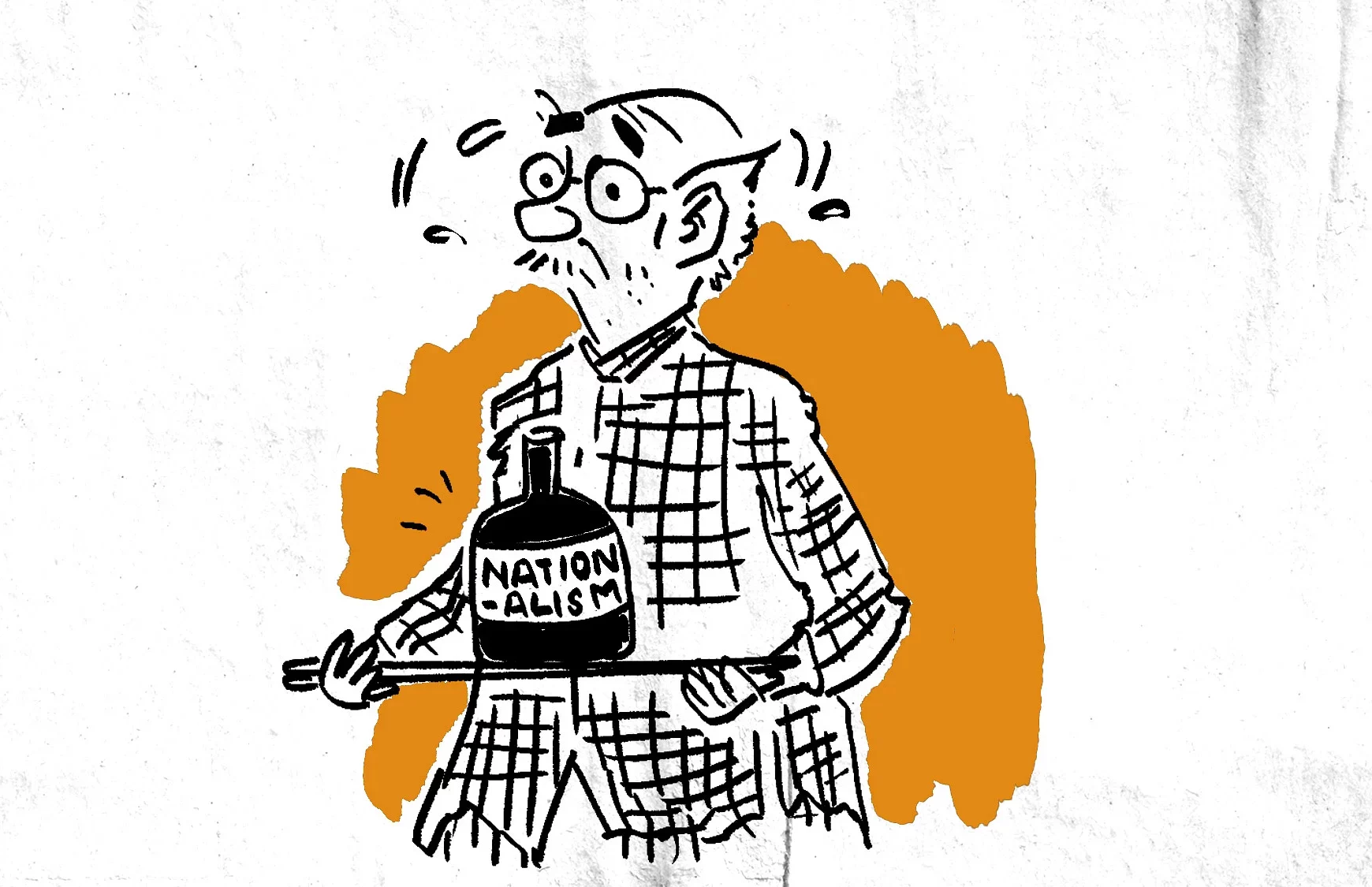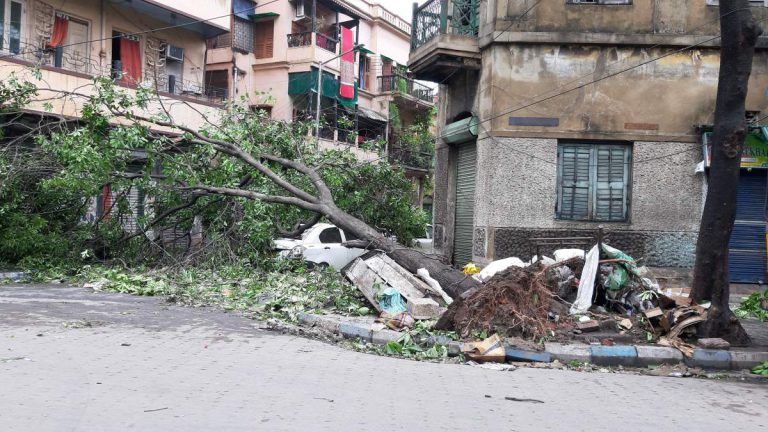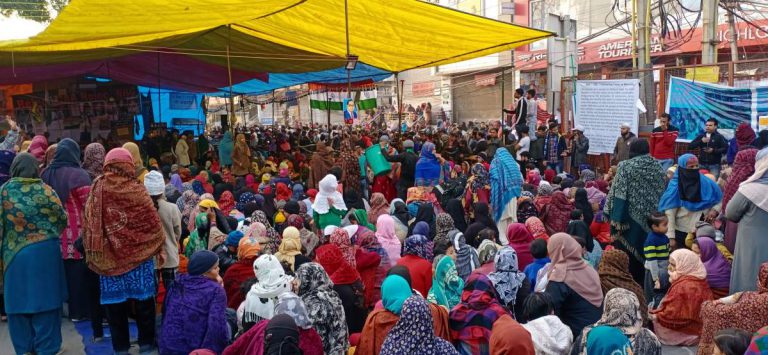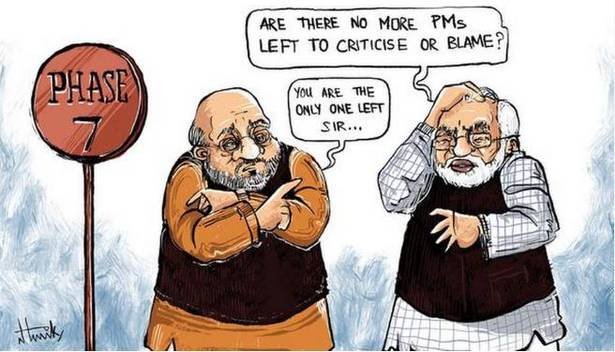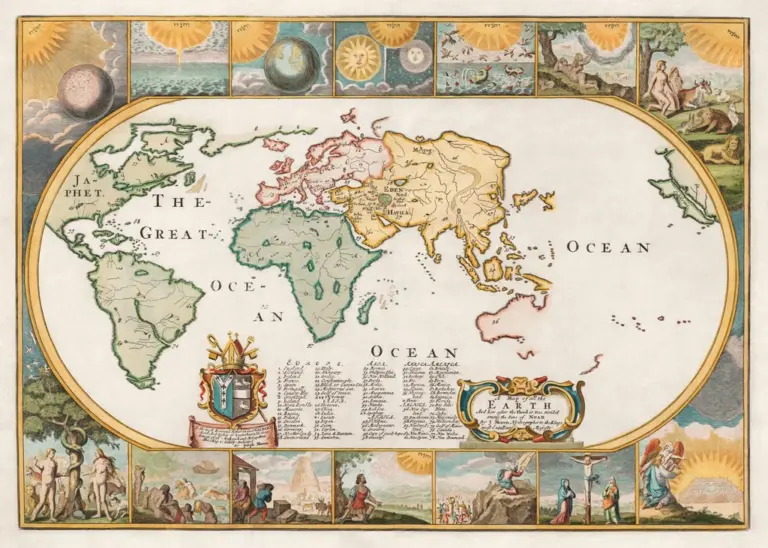The King and the Divine

Is it not a strange paradox that the construction of Ram Mandir and the PM New Residence are going on at the same time? Is it not dubious to see seemingly pious and untouched narcissistic cult-profiles emerge as politicians nowadays? Doesn’t the celebration of recent elections as ritualistic festivals , make one rethink the core ideas of politics or governance? The vacuous hoopla around such kind of politics does take one aback and make them doubt their own reasoning. It makes the current regime look as if it derives pleasure from the misfortune of others. It is only at such times when citizens of a state slowly transmogrify into subjects of a state.
Sociologist Jacob Taubes in one of his papers “ Theology and Political Theory”, wrote: “ As there is no theology without political implications, there is no political theory without theological presuppositions.”1 One can reasonably argue that how the present politics presupposes a dissipated, disparaging version of Hinduism, namely “Hindutva” at its core. Hindutva associates the Divine with a transmundane form of reality, meant to be unquestionable and unaccountable.
Their place is supposed to be on a throne guarded by sentinels who are on the constant search for dissenters, “rebels”, and “outsiders”. Their ideas are to be upheld and words to be obeyed. There must not lie any source of identification with the divine. They are supposed to be worshipped and feared. How can we possibly imagine that a system which opposes a liberal mediation between the divine and the humans, stressing authority and obedience as its key notions would suddenly turn liberal in its political doctrine?
It is this transcendent idea of the divine and its association with the leader that is problematic in theory and in practice. This throws the very idea of a leader far away from reality. Consequently, one no longer perceives their work as duty or responsibility, but rather a blessing. One stops questioning them because we believe they can never be wrong, one glorifies their role and overestimates their abilities. As a result, a leader no longer remains the peoples’ representative rather slowly becomes the King, who is believed to have the God’s Will.
The King is believed to possess the divine right to rule over his ‘subjects’. A severe avoidance of sharing identity with people becomes a sine qua non. Therefore, neither one shares a basic identity with the divine nor the king. ( Maybe this is the reason we are keen to establish a Ram Rajya!). A new social contract gets established, where the divine in his new Mandir and the king in his new residence are the ones who need to be guarded and certainly not the other way round. Anyone who tries to question the aforementioned God’s Will is portrayed as an usurper of the throne. Heretics who differ from the will are said to be against general interest.
Nevertheless, its ramifications are even worse. First, a paranormal version of the state develops where its sense of duty lies only in security, law and order, and meagre compensation in the name of welfare politics. Conspirators, international players, market, lack of funds, failure of predecessors and communal identities becomes the “tell-tale” behind their lack of competence in key areas of governance, economy, business and education. As time flies, a “recontextualisation” of the state takes place where it becomes a necessity to wash its hands out of these areas, where it can no longer be explicable.
For instance, unemployment has been a major problem for quite some years. However, what the king has been successful to do is that one no longer asks the state “ Why are you not able to provide jobs?”, rather one says to oneself it is because of “them” – “the outsiders are the reason why I am not getting my rights!” This leads one to pay allegiance to the Divine Will and oust “the outsiders”; either by lynching or terrorizing them or creating reservations for regional identities.
Second, as the situation proceeds, the state over the years deteriorates into a confessional state recognizing a particular religion, accompanied by public cultus. One might often come across Mohan Bhagwat’s speeches saying “ Everyone living in India is a Hindu” or “ Entire world thinks that to be one, everyone needs to follow the same culture, same way of living but it is. in India we talks about Vasudeva Kutumbakam. But all diversity only emphasizes oneness and the unifying feature of diversity.”2 Supporters might contend and justify the statement that since the word Hindu is derived from Sindhu and anyone living beyond the river Indus is a Hindu.3 Although the picture drawn might seem to be a commitment to unity and religious diversity, it is to be argued that this walks hand-in-hand with a zero-toleration policy that preaches exclusion and segmentation along with a zero-support for individual liberty.
Third, the fundamental meaning of politics undergoes a substantial shift. The writer, being a politics student, was taught on her first day of class that “What is a good life?” is the central question of politics. The debates and discussions of politics are related to how or what should be done in the eternal pursuit of a good life. But, it is to be said with great distress that today’s practiced politics stands afar. Authoritarianism, majoritarianism and Hindutva benchmarks of nationalism are running politics.4 One gets to see questions of representation, identity, membership, religion and even historical myth as the bottom-line of current politics. Nonetheless, an aggressive idea of nationhood, accompanied by several ossified institutions and an “otherization” of minorities preoccupies this politics.
Can we stop this mythical supposition and theological association in politics? The answer might not seem in affirmative. As one contemplates the narrative ( Government ) and the counter-narrative ( Oppositions ) of the Divine Will , one notices the fault-line. We are arguing and counter-arguing an ideology that is absolutely not synonymous to the very idea of “India”. As long as the counter-narrative continues to oppose Hindutva , it will be difficult to produce an alternate vision to the masses.
It is paramount to go back to history and imbibe the values set by the Bhakti- Sufi traditions, Buddhism, Jainism and among others, i.e. , ideas that resonate with the practices of debate and discussion forged by reason, tolerance and reverence towards differences, celebrating a syncretic culture and most importantly establishing a connection between the divine and the masses. Being a politics student, one often looks out for relationships of power, thus, one can argue that once the universal relationship of power is challenged one can overrule the connection between the divine and the king.
The phrase “ Power corrupts; absolute power corrupts absolutely”5 is analogous to what one sees today. The Ram Mandir and the PM New Residence are built on the debris of a political and cultural past that is practically non-existent today and uphold a social contract of hero-worshipping. Both of them are symbolic to the absolute power of the king and the divine and their diminishing moral values.
REFERENCES
- TAUBES, J. (1955). THEOLOGY AND POLITICAL THEORY. Social Research, 22(1), 57–68. http://www.jstor.org/stable/40969525
- ( 2018, February 25 ). Everyone living in India is a Hindu: Mohan Bhagwat. The Hindu
- Shepherd, K. I. (2019, December 31). In Mohan Bhagwat’s India, Everyone is a Hindu. The Wire. Retrieved September 21, 2021 from https://thewire.in/religion/mohan-bhagwat-rss-hindu-rashtra
- Mehta, P.B. ( 2021, July 2). The religious life of Indians, according to a recent survey. The Indian Express. Retrieved September 21,2021 from
- The Phrase Finder. The meaning and origin of the expression: Power corrupts; absolute power corrupts absolutely. Retrieved September 21,2021 from https://www.phrases.org.uk/meanings/absolute-power-corrupts-absolutely.html


